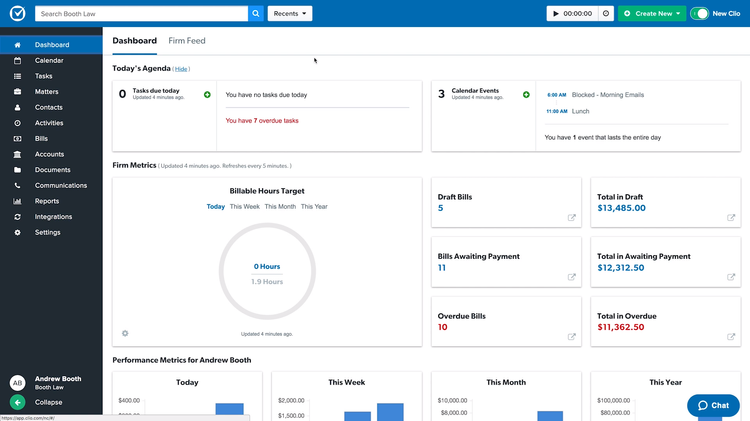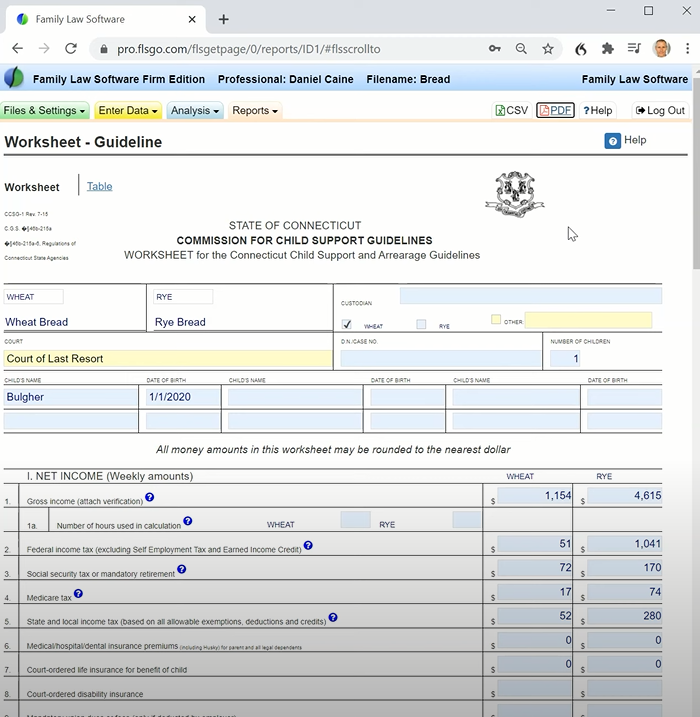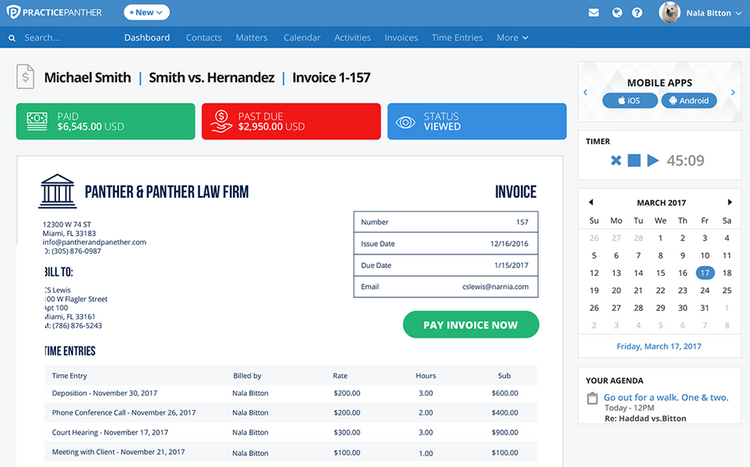The Best Family Law Software
Get the best software for your business. Compare product reviews, pricing below.
What is Family Law Software?
Family law software provides a solution for digitally managing court documents, streamlining team communication, and tracking important case-related deadlines. This industry-specific legal software assists with these specific practice areas:
- Marriage and civil unions
- Prenuptial agreements
- Divorce, annulment, and legal separation
- Adoption and surrogacy
- Child custody and visitation
- Child support, spousal support, and/or alimony
- Property settlement agreements
All of these legal issues are incredibly complicated due to their highly personal nature. As a result, it’s important to maintain an extra level of professionalism when working in family law to avoid causing unnecessary problems in the lives of clients. Additionally, case law can vary drastically based on local jurisdiction. All-in-one family law software keeps family law attorneys, firms, and practices running smoothly even through complicated cases.

Features of Family Law Software
- Record management: Create a system for keeping legal records related to all cases and consultations handled by your family law firm
- Task management: Create and assign tasks to specific team members, paralegals, or co-counsel based on seniority, specialties, or other factors
- Contact management: Store current contact information for clients, attorneys, co-counselors, judges, and others you may need to communicate with during or after a case
- Communication hub: Collect and organize digital communication forms, such as emails, texts, and voicemails, into one area for easy retrieval before meetings or court appearances
- Calendaring and scheduling: Add client meetings, team meetings, court appearances, and filing dates to a shared, synchronous calendar
- Deadline tracking: Track various deadlines and mark upcoming dates based on importance or case information
- Alerts and notifications: Set automated reminders to go out whenever necessary, minutes, hours, days, or weeks in advance of filing and court dates
- Billing and invoicing: Use legal e-billing tools to track all billable hours, fees, and expenses; generate accurate invoices to send to clients
- Client portal: Allow clients to access certain documents themselves, or submit requests regarding child custody arrangements or alimony payments

Best Family Law Software Benefits
Family law firms which utilize these software features can enjoy many benefits, including:
Easier Scheduling with Calendar and Notifications
Family law can get complicated, with even mutual separations involving minimal assets taking a lot of time to sort out to the satisfaction of both parties. Client meetings, court dates, and more can all be organized through shared calendars to ensure important appointments don’t get missed. Of course, this is also useful for legal billing as well.
Missed court dates can be disastrous for law firms and the clients they represent. Automated notifications can alert team members when deadlines are approaching, from simple client meetings to vital court filing dates. Software with mobile app functionality ensures timely reminders directly reach everyone involved. And if you’re working with co-counsel, you can share scheduling details with them to prevent any miscommunication which can cause missed appointments.
Organize (and Digitize) Documents
As in most legal matters, family law involves a lot of documentation. And the more complicated the case, the more paperwork there is. In the past, entire filing cabinets could be dedicated to a single acrimonious divorce. Now, family law software helps legal professionals to digitize existing records and reduce physical paperwork for future filings. Document management modules keep all your client files organized while remaining accessible, without any of the vulnerabilities of physical documentation.
For instance, you may have to request multiple financial affidavits for an alimony hearing. If a client submits an inaccurate affidavit, you’ll still want to keep the old version in case it reveals any future discrepancies later on. The correct documentation can be the difference between getting spousal support for a client and being denied by the courts.
Accurate Legal Billing
Few things are worse for law firms than clients who think they can get free legal services. Billing tools track exactly how much time a client spends, allowing you to accurately bill them later. You can also track time used by paralegals, co-counsel, and anyone else who might be involved with the billable hours on a client file.
The same legal time e-billing tool can be used to streamline invoicing, automatically bringing in the billed hours and calculating the total fees. By automating the time tracking and invoicing process, you can eliminate potential disagreements with clients about rates or fees. If your firm is handling large caseloads, this can drastically cut down on time manually checking billables for accuracy.

Effective Client Communication
Coordinating with clients can be difficult, particularly if multiple parties or co-counselors need to be involved. More than ever, clients want ways to communicate with their legal teams through technology. Client portals allow those represented by your family law firm to access information at any time online. If they want to review documents or submit forms related to their family law case, they can do so from the comfort of their own homes at any time.
Due to COVID-19, many law firms have adapted to remote meetings through video conferencing. Online portals and mobile apps let clients provide information from mobile devices like smartphones and tablets. Video conferencing facilitated by software can also ensure smooth, real-time communication between all parties. This added convenience can prove beneficial for clients who are otherwise unable to travel to drop off physical documents due to distance or work obligations. Electronic payments are also possible through secure client portals, further expediting the billing and invoicing process.
Family Law Software Pricing
Family law software pricing depends on a lot of factors, starting with whether your firm prefers an on-premise solution or a cloud-hosted product. Most options are now cloud-based in order to accommodate remote cases and travel between physical locations, like law offices or the courthouse. At the very least, a mobile app capable of working with Android and iOS devices is necessary for legal professionals who offer on-the-go services.
Some SaaS options start at $39 per month per user while others reach $87 per month per user. Others are available for a flat monthly fee, such as $100 per month, no matter how many users you have. Perpetual licenses are generally more expensive upfront, ranging from $379 per user to $695. Whether you’re at a nationwide family law firm or a small private practice, there are software options available for your budget and scope of services.

